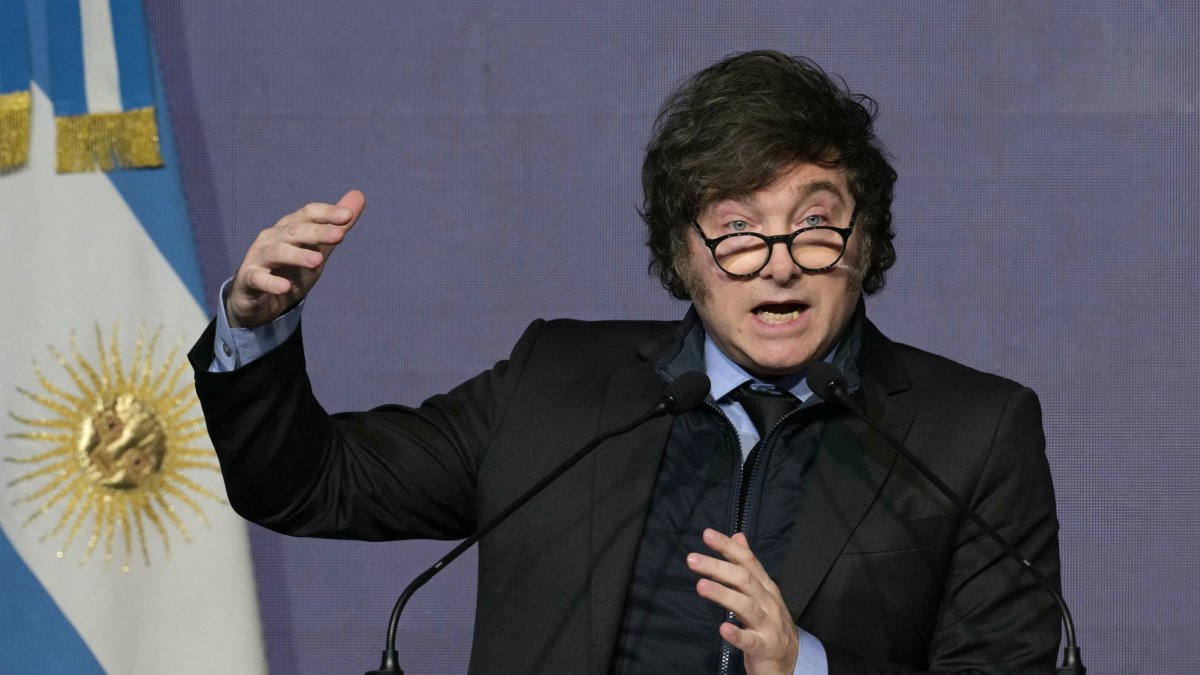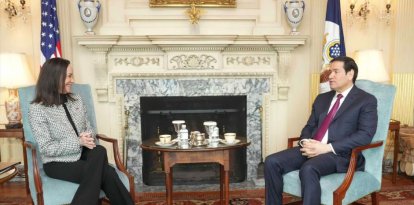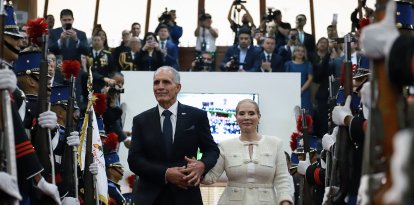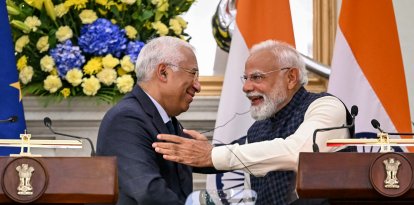Opposition on the prowl in Argentina: Milei fighting on several internal fronts
The Argentine president must face difficulties inherited from the previous administration, the opposition's attempts to destabilize his government and hinder important reforms, as well as the consequences of a handful of unforced errors.

Argentine President Javier Milei
Argentine President Javier Milei is facing a political and social storm. As his administration moves forward, several simultaneous domestic conflicts are testing his leadership and his promise to transform the country. Between the approval of judicial investigations against him, the rejection of his nominees for the Supreme Court, a general strike called for Thursday and the persistent (and misnamed) retirees' marches, marked by episodes of violence, the president finds himself in a complex moment, perhaps the most tense at the local level since he assumed the presidency in December 2023.
The investigation of the 'Libra case'
One of the most recent blows to Milei came with the approval in Congress of an investigation into the so-called "Libra case," a scandal that broke out after the libertarian president promoted a cryptocurrency called Libra on X, "to encourage the Argentine economy, funding small businesses and Argentine enterprises." Milei's post caused the price of this digital asset to shoot up significantly in a short period of time and then fall sharply at a great speed.
This happened due to the poor transparency of Libra, created by a controversial businessman named Hayden Mark Davis, whose experience in the world of cryptocurrency was almost nil at the time he met Milei, so everything seems to indicate that he used the Argentine president to carry out a scam.
After the scandal caused by his post on X, Milei deleted it and apologized on the same social network, acknowledging that he had not investigated enough on the matter.
The opposition, led by Peronism and sectors of the left, took advantage of the mistake to move against the president and obtained the necessary votes last Tuesday to create a special commission to investigate whether there was embezzlement of public funds or undue benefits for private parties close to the ruling party.
The government accused the opposition of "causing a circus."
The rejection of the nomination of the Supreme Court judges proposed by Milei
Another setback for Milei came in the Senate, where the opposition rejected the nominations of two candidates proposed by the president for the Supreme Court: conservative Manuel García-Mansilla and Ariel Lijo, who has been targeted for guaranteeing impunity to businessmen and officials in corruption cases and for illicit enrichment, among other accusations.
In a statement, the government pointed against the opposition stating that it was a rejection "for purely political reasons and not due to questions of suitability."
Retirees' marches: An excuse to destabilize Milei's government?
For months now, Wednesdays have become the day of retirees' marches in front of Congress, demanding an increase in pensions, although the rallies are usually plagued by young leftist activists and other people who are not retirees but usually cause disturbances.
In fact, these protests, organized by far-left social movements and politicians, have gained volume, but also violence. Last March 26, a large number of rioters infiltrated the protest, which led to clashes with the police. There was destruction, tear gas and at least 10 people arrested.
The ruling party accused Kirchnerism and the left of hiring agitators to try to destabilize the government, while the opposition, faithful to its victimhood game, pointed to the repression as a sign of authoritarianism.
Many Argentine analysts highlight the fact that, despite the fact that retirees have been suffering for decades and mainly under Peronist governments, violent protests only occurred during administrations led by other parties, such as under Mauricio Macri between 2015 and 2019 and now under Milei.
General strike against Milei
On Thursday, April 10, the General Confederation of Labor (CGT) will carry out a general strike that promises to paralyze the country for 36 hours. It is the third major union protest since Milei took office, and this time the main motive is related to a support to the claim of the retirees' marches, although they also demand paritarias, a negotiation between unions and employers to establish new salary scales, approval of already sealed salary agreements, among other claims.
Chief of the Cabinet Guillermo Francos criticized the strike, stating that when the ruling party has a greater number of seats in Congress, the government will move forward with labor reforms that were pending and "that with a precautionary measure were paralyzed."
A complicated outlook
Milei faces a tough month of April. However, despite the inherited difficulties, the opposition's attempts to hinder important reforms or destabilize his government, and a handful of unforced errors, the ruling party seems to continue to have a strong support from the population, which in 2023 voted for a radical change in the country to put an end to decades of Peronist populism.
This year is key for the government, since there will be legislative elections that will define how the Houses of Deputies and Senators will be formed, and it will be the best way to measure the confidence of the population and to know whether Milei will have more possibilities to advance with his planned reforms.




























